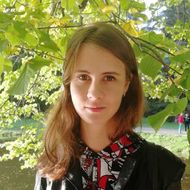- A
- A
- A
- ABC
- ABC
- ABC
- А
- А
- А
- А
- А
- HSE Campus in St. Petersburg
- Saint-Petersburg School of Social Sciences
- Department of Political Science and International Affairs
- News
- The Department of Political Science invites you to the Research Seminar, Friday, October 30, 2020, at 18:30 (MSK)
-
Departament
- About the Department
- Faculty and Staff
-
Annual Conference “The October Readings”
-
More About the Conference
-
Upcoming Conference
-
Archive
-
-
Academic Seminar
-
Upcoming seminars
-
Previous Seminars
-
198068 Saint Petersburg
Griboyedov channel embankment, 123, Room 324
t. +7 (812) 644-59-11, plus 61415
The Department was created on the basis of the Department of Politics, which was established in 2005. The main purpose of the department is to provide today’s students with professional training in the fields of political analysis and sociopolitical engineering, as well as in creating a special creative atmosphere that allows for the formation and development of a society of political experts who are capable of not only carrying out professional research, but also proposing and implementing solutions to relevant Russian and international problems.
 Terrorism and Political Contention. New Perspectives on North Africa and the Sahel Region
Terrorism and Political Contention. New Perspectives on North Africa and the Sahel Region
Atanasiu M., Besenyő J., Denisova T. S. et al.
Springer, 2024.
Коцур Г. В.
Вестник Пермского университета. Серия: Политология. 2024. Vol. 18. No. 1. P. 103-111.
Issaev L., Korotayev A., Besenyő J.
In bk.: Terrorism and Political Contention. New Perspectives on North Africa and the Sahel Region. Springer, 2024. P. 1-17.
OxonCourts Judicial Studies Graduate Colloquium. OxonCourts Judicial Studies Graduate Colloquium. University of Oxford, 2019

The Department of Political Science invites you to the Research Seminar, Friday, October 30, 2020, at 18:30 (MSK)

Dear colleagues,
We are pleased to invite you to the Department of Political Science and International Relations Research Seminar, which will be held on Friday, October 30, 2020 at 18:30 (MSK).
Speaker: Tetiana Zemliakova (PhD Candidate, Europe University Institute, Florence, Italy).
Title: The Discipline Born from the Spirit of Reform: A History of Political Science Through Three Generations (1860-1903)
Institutional and intellectual transformations in the American academy in the second half of the 19th century led to the emergence not only of the modern research university, but also of the epistemic - disciplinary - regime associated with it.In the process of "disciplinization", that is, bringing the body of knowledge in line with the requirements of universities, some scientific fields disintegrated and lost, while others expanded and became stronger. By the 1860s, moral philosophy as the basis of the "old" political education, as well as the classical college model, had disappeared under the pressure of "disciplinarization." Already two decades later, the structural place of moral philosophy in the new university was taken by the modern discipline in the form of political science. The establishment of political science required the work of three generations of scholars. The first generation historicized the dogmatic tenets of moral philosophy. The second generation of scholars developed a political-historical research infrastructure aligned with the newly formed university. Finally, the third generation of scholars rejected historicization and created the modern disciplinary division of political science. The lecture will present the results of research that allow us to describe the logic of the emergence and establishment of political science as a university discipline.
Working languages are Russian / English.
Seminar will be online via Zoom
The link to join Zoom: https://zoom.us/j/91858257466?pwd=Z2MvWnBnRFMzS3VKdlgraWRyM1FEUT09
Meeting ID: 918 5825 7466
Password: 944957
If you have questions please contact Stanislav Shkel (sshkel@hse.ru).
-
https://elearning.hse.ru/en/mooc/
Massive Open Online Courses
-
https://www.hse.ru/en/visual/
HSE Site for the Visually Impaired
-
http://5top100.com/
Russian Academic Excellence Project 5-100
- © HSE University 1993–2024 Contacts Copyright Privacy Policy Site Map
- Edit

